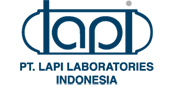Ever deeper knowledge of what our bacteria can do


Since our foundation in 1987, we, Winclove Probiotics, have been gathering information on the properties and functionalities of the probiotic bacteria in our strain collection, and we now have a treasure chest of knowledge on our strains: our strain database. It informs the selection and the use of the specific strains in our premium probiotic formulations and assures their quality, efficacy and safety. We conduct the underlying research in our own laboratory and in collaboration with external partners.
Our strain databank contains among other things information on:
- The GI survival of our bacterial strains; to work effectively, the bacteria must arrive in the gut alive, so we measure for example how well our bacterial strains survive the stomach’s acidic environment.
- The amount of lactic acid that our bacterial strains produce; lactic acid is considered as a health-promoting element in probiotics: when this acid is produced at a high rate after rehydration, we know that a bacterium is directly active and has a greater chance of surviving in the gut.
- The absence of antibiotic resistances in our caterial strains; all our strains must be completely safe to use.
We collect the data above mentioned for every strain in our database. Mark Hanemaaijer, Winclove’s Bio-informatician: ‘For some data we decide per strain if it’s relevant: we’re talking about data that can be extracted only through complex, costly experimentation. For example the ability to modulate the immune system through the stimulation of cytokine production.’
Where all formulations start
Information on the individual strains is the starting point of all our formulations. Mark: ‘Take for example Ecologic® Barrier, the product we developed to improve gut barrier integrity. To develop it, we carried out a TEER (TransEpithelial/Endothelial Electrical Resistance) assay, an in vitro analysis to study gut barrier integrity. The strains in our collection were screened, and the ones that emerged from this test as the best were then selected for the product.’
Sound scientific foundation
After we develop products based on the data from individual strains, we of course proceed with our clinical studies on the final formulations. Together these results yield a sound scientific foundation for the efficacy of our formulations. Which is crucial for especially doctors and other health care professionals. But, naturally, our research knows no end…
Enriching the current product dossiers
Our R&D department regularly sets up new screenings with our commercial and research strains to ground our knowledge of the existing working mechanisms even more thoroughly. And to characterize our strains for additional working mechanisms. Mark explains: ‘A lot of research literature is written about potential, new working mechanisms of probiotics in general or specific individual strains. This research by third parties inspires our R&D team to study such new mechanisms in our own strains too. If it then appears that one of our own strains also possesses these useful new properties, that of course reinforces the product’s case for relevant indications.’
Three real life examples:
- Ecologic® Panda: TEER + stressor TNF-α, IL-1β. Initially we looked only at this product’s effect on various cytokines; later, we enriched the dossier with data on the gut barrier function.
- Ecologic® Relief: various pathogen-inhibition data. During the product development we looked only at the composition (balance between Bifidobacteria and Lactobacilli) and lactic acid production; later, we strengthened the dossier by data on the inhibition of pathogens that can cause constipation.
- Winclove Adult, Senior: TEER and IL-10 stimulation. This formulation was developed as a general product, aimed at pathogen inhibition; later, on the based on IL-10 stimulation, immune support (including protection of the barrier function) was added to the dossier.
Autism and microbiome
‘New knowledge on our strains can sometimes also lead to a formulation for a completely new indication area,’ says Mark. ‘That’s how for example autism has been linked in recent years with the microbiome. From the literature, new information on possible working mechanisms comes to light. Based on that we’re now doing research in the autism spectrum and striving to develop a new formulation.’
Making the difference through innovation
Winclove is also continuously looking for new bacterial strains with unique functionalities to ensure that our database of working mechanisms will be even more extensive. More strains means more unique functionalities that can contribute to our indication areas. Together with our business partners, we’re targeting areas where we believe our probiotics will make a difference. From that angle our R&D colleagues are zeroing in on vital bacterial strains.
B. adolescentis
Mark: ‘Currently, for example, we’re researching the Bifidobacterium adolescentis, a common species found in the human large intestine. B. adolescentis can break down complex fibres and stimulate butyric-acid producing bacteria, so it’s important for healthy functioning of the intestine. We’re now looking at what strain of B. adolescentis matches our criteria best so that we’ll be able to develop it from isolation to production.’
DNA sequencing
In addition to conducting in vitro screenings with our strains in the lab, we study their DNA so that we can predict our strains’ properties and find useful new strains for our database. Mark: ‘There’s a great interaction between the information we obtain in screenings and on a bacterium’s genome. When the predictions we make with DNA sequencing are 100% consistent with the screening results from the lab, then we no longer need to do the screenings. That saves time and money.’
Interesting updates in your mailbox
Subscribe to our newsletter and receive the latest news about Winclove, probiotic-related research & publications, relevant market developments and inspiring articles.








